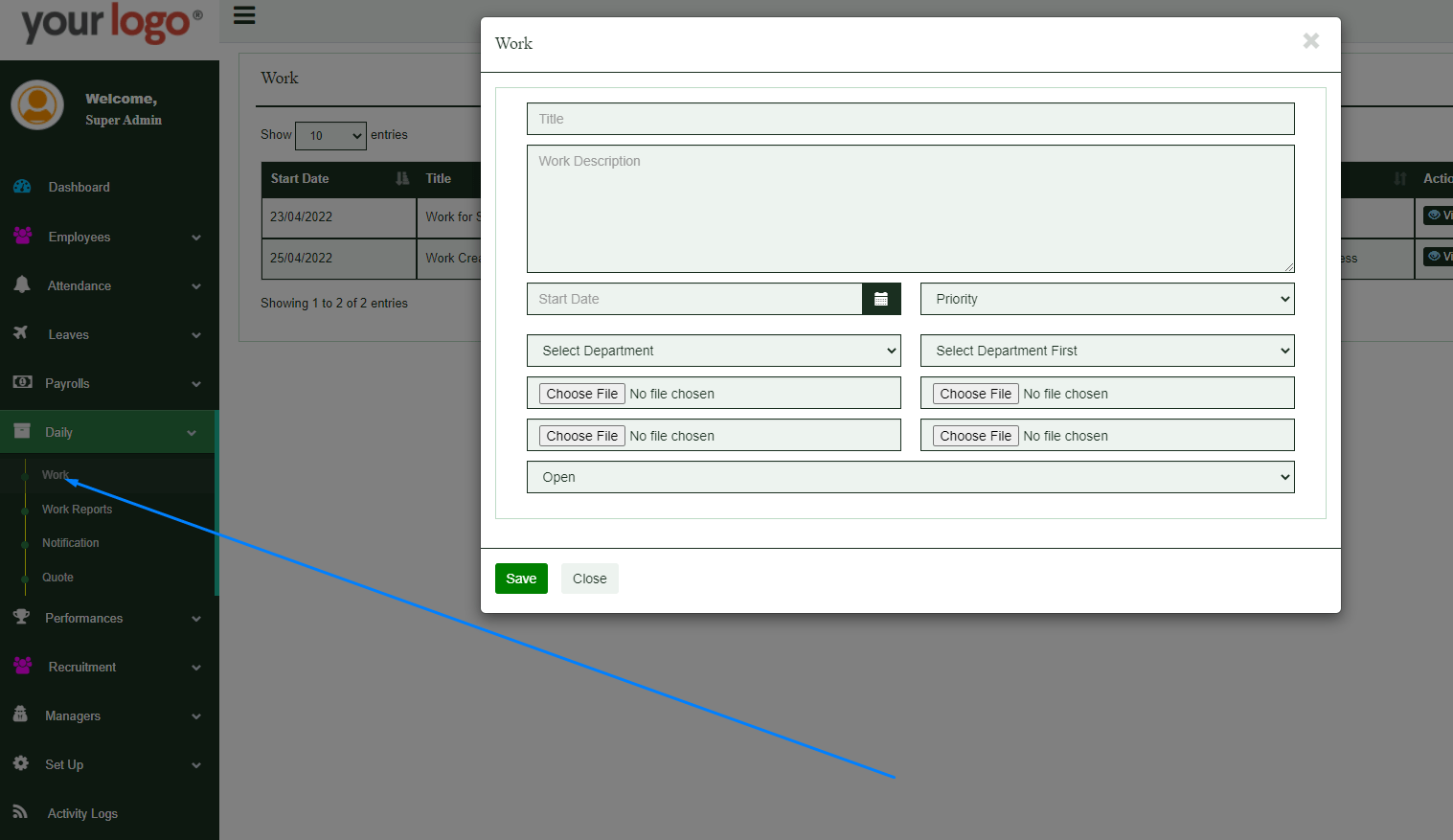WORK Of HR IN COMPANIES

Recruitment can be defined as the overall process of identifying, sourcing, screening, shortlisting, and interviewing candidates for jobs within an organization. The recruitment and selection of candidates can be the most exciting as well as the most stressful and time-consuming task for an HR manager. When they are limited resources to carry on the recruitment process, it can become overwhelming and tiring.
Responsibilities of HR Manager

Recruiting Candidates
HR needs to understand the needs of the organization and ensure those needs are met when recruiting for new positions. It’s not as simple as running an ad on Indeed: you’ll need to analyze the market, consult with stakeholders, and manage a budget.
Then, once the position is advertised, additional research should be conducted to ensure that the right candidates are attracted and presented. Recruitment is a big and expensive undertaking; The right candidate can revitalize an entire organization, but the wrong candidate can disrupt operations.
Hire The Right Employees
The human resources department is responsible for setting up interviews, coordinating recruitment efforts, and introducing new employees. They are also responsible for ensuring that all the paperwork involved in hiring someone is completed and making sure that everything from day to day is navigated successfully.
Payroll Processing
Payroll is its own beast. Each day of receipt of wages must be taxed and hours earned. Expenses must be reimbursed and raises and bonuses must also be added. If you think paying taxes once a year is a chore, imagine what HR jobs would be like and make sure they’re correctly deducted each pay period.


Taking Disciplinary Action
This responsibility may explain why HR tends to get a bad rap. When done improperly, disciplinary action can deprive a valuable employee of a valuable employee and can even lead to litigation or a bad reputation. But when handled appropriately, disciplinary action can lead to employee success.
For example, if a company notices that a particular employee is consistently late and continues to be late, even after the employee has received multiple warnings, human resources can step in and investigate the reason for being late. This could be an opportunity to extend benefits such as mentoring employees or providing additional resources to help employees learn to be on time. Instead of paying the cost of firing and then hiring someone to replace that employee, it can be a learning opportunity that can enhance that employee’s career.
On the other hand, sometimes disciplinary action is not the best course of action and an employee may need to be terminated. The best HR departments know when an employee isn’t a good fit for the company and would be happier elsewhere. HR depends on developing strong relationships with managers and employees to determine the cohesion and health of a team.
Update Policy
Policies must be updated (or at least reviewed) annually as the organization changes. It is HR’s job to update official policies and recommend changes to policies when they are no longer serving the company or employees. Occasionally, a policy needs to be updated in response to an event. Personnel should always be included and consulted on these decisions.
Maintain Employee Records
Maintaining personnel records is required by law. These profiles help employers identify skill gaps to facilitate the hiring process, analyze demographics, and comply with regulations. They also contain personal information and emergency contacts for each employee.
Performing a Benefit Analysis
Staying competitive is paramount when trying to attract top talent. A prospective employer may choose another company with a lower salary if the benefits are more attractive. HR should regularly investigate similar companies to see if their interests are competitive.

Ways in which HR Departments Help Employees
Provide Career Growth
Procrastination is bad for business, and it’s smart to keep your best people in business. HR can provide career paths to help guide each employee to a long-term future with the company. Then HR can check in periodically to better guide employees on their career path.
Training and Supporting Managers
Managers are not born. They are created. HR can help provide management guidance to managers, ensuring that departments and teams function as best they can. This may include sending managers periodically to formal trainings and retreats.
There are many other ways HR Manager’s can help employees in an organization.







